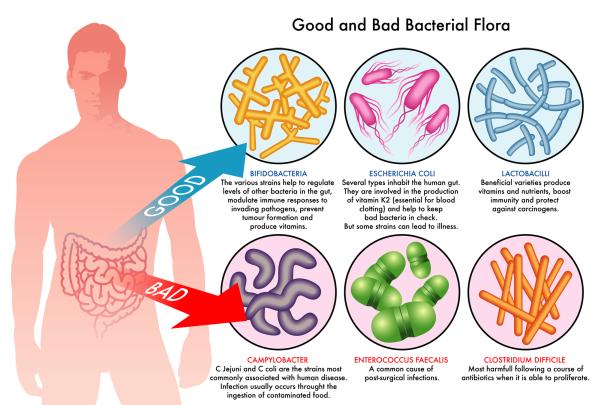Can Probiotics Help My Eczema Symptoms? It’s an important question and one that should be considered by everyone who suffers from this skin condition.
We recently reported on real story about a young baby with chronic eczema making a complete recovery from eczema that developed after antibiotics at birth. Read our case study here.
Eczema, a common and often frustrating skin condition, affects millions of people around the world. Characterised by red, itchy, and inflamed skin, eczema can significantly impact a person’s quality of life. While there are various treatment options available, including topical creams and ointments, many individuals are increasingly turning to alternative remedies to manage their symptoms. One such alternative approach that has gained attention in recent years is the use of probiotics. In this blog, we will explore the potential link between probiotics and eczema and how incorporating these beneficial bacteria into your diet may help alleviate eczema symptoms.
Probiotics

Understanding Eczema:
Before delving into the role of probiotics, it’s crucial to understand what eczema is and what factors contribute to its development. Eczema, also known as atopic dermatitis, is a chronic skin condition that results in patches of irritated and inflamed skin. It often starts in childhood and can persist into adulthood. Eczema is a complex condition influenced by both genetic and environmental factors.
Eczema is associated with a disrupted skin barrier and an overactive immune response. The skin’s natural barrier, which is supposed to keep irritants out and moisture in, is compromised in individuals with eczema. This leads to increased sensitivity to environmental triggers and the entry of allergens, bacteria, and other irritants into the skin, causing inflammation and itching.
The Gut-Skin Connection:
Recent research has shed light on the potential link between gut health and skin conditions like eczema. The gut contains a diverse community of microorganisms, known as the gut microbiota, which play a significant role in maintaining overall health. The balance of these microorganisms is crucial for the proper functioning of the immune system and other bodily processes.
When the balance of the gut microbiota is disrupted, it can lead to an array of health issues, including skin problems. This connection between the gut and the skin is often referred to as the “gut-skin axis.” Imbalances in the gut microbiota can trigger an inflammatory response that may exacerbate skin conditions like eczema.
Gut health

Probiotics and Gut Health:
Probiotics are live microorganisms that are considered beneficial for gut health. They are typically found in fermented foods. Probiotics are known for their ability to restore and maintain a healthy balance of gut bacteria. This balance is essential for proper digestion, absorption of nutrients, and regulation of the immune system.
Several studies have suggested that probiotics can positively influence the gut-skin axis and potentially help alleviate eczema symptoms. Here’s how probiotics may contribute to eczema management:
- Immune Regulation: Probiotics can modulate the immune system by promoting a balanced and appropriate immune response. In individuals with eczema, an overactive immune response often contributes to skin inflammation. Probiotics may help regulate the immune system, reducing the severity of eczema symptoms.
- Anti-Inflammatory Effects: Certain strains of probiotics have been shown to possess anti-inflammatory properties. These probiotics can help decrease the levels of inflammatory markers in the body, potentially reducing the redness and irritation associated with eczema.
- Skin Barrier Support: The gut-skin axis is not just about immune function; it’s also related to skin barrier integrity. Probiotics can indirectly support the skin barrier by promoting gut health. A healthier gut can lead to improvements in the skin’s natural barrier, making it less susceptible to irritants and allergens.
Probiotics and Eczema: What the Research Says:
While the idea of using probiotics to manage eczema is promising, it’s essential to consider the current state of research on this topic. Studies exploring the efficacy of probiotics for eczema have produced mixed results, and more research is needed to establish clear guidelines for their use. Nevertheless, here are some key findings from existing research:
- Infant Eczema: Some studies have shown that probiotics, particularly specific strains like Lactobacillus and Bifidobacterium, may be beneficial in preventing or reducing the risk of eczema in infants when taken during pregnancy or early infancy. This suggests that early exposure to probiotics might have a protective effect on the development of eczema.
- Moderate Symptom Relief: For individuals with existing eczema, probiotics may provide some relief, particularly in reducing the severity of symptoms. A study published in the Journal of Allergy and Clinical Immunology reported that probiotic supplementation resulted in a reduction of eczema severity in children.
- Variable Outcomes: It’s essential to note that individual responses to probiotics can vary. What works for one person may not work for another. The effectiveness of probiotics for eczema management may depend on factors like the specific probiotic strains used, the duration of supplementation, and individual characteristics.
Choosing the Right Probiotics:
If you’re interested in trying probiotics to help manage your eczema, it’s crucial to select the right probiotic products and strains. Here are some considerations to keep in mind:
- Consult a Healthcare Professional: Before starting any probiotic regimen, it’s advisable to consult with a healthcare provider, such as a dermatologist or allergist, who can provide guidance based on your specific condition and needs.
- Select the Appropriate Strains: Research indicates that not all probiotics are equally effective for eczema. Look for products that contain strains like Lactobacillus rhamnosus and Bifidobacterium breve, as these have shown promise in eczema management.
- Ensure Viability: Probiotics need to be live and viable to be effective. Check for products that have been tested for viability, and store them according to the manufacturer’s recommendations to maintain their potency.
- Be Patient and Consistent: Probiotics may take some time to exert their effects. Consistency is key, and you may need to use them for several weeks or even months to see significant improvements.
Conclusion:
The relationship between probiotics and eczema is an exciting area of research that holds promise for individuals seeking alternative ways to manage their symptoms. While probiotics may not be a cure-all for eczema, they can play a supportive role in promoting gut health, regulating the immune system, and potentially reducing the severity of eczema symptoms.
If you’re considering incorporating probiotics into your eczema management plan, it’s essential to do so under the guidance of a healthcare professional. Additionally, remember that probiotics should complement, not replace, other recommended eczema treatments and skincare practices. As research continues to evolve, we may gain a better understanding of how to optimize the use of probiotics for eczema management, providing relief to those dealing with this often-chronic skin condition.




